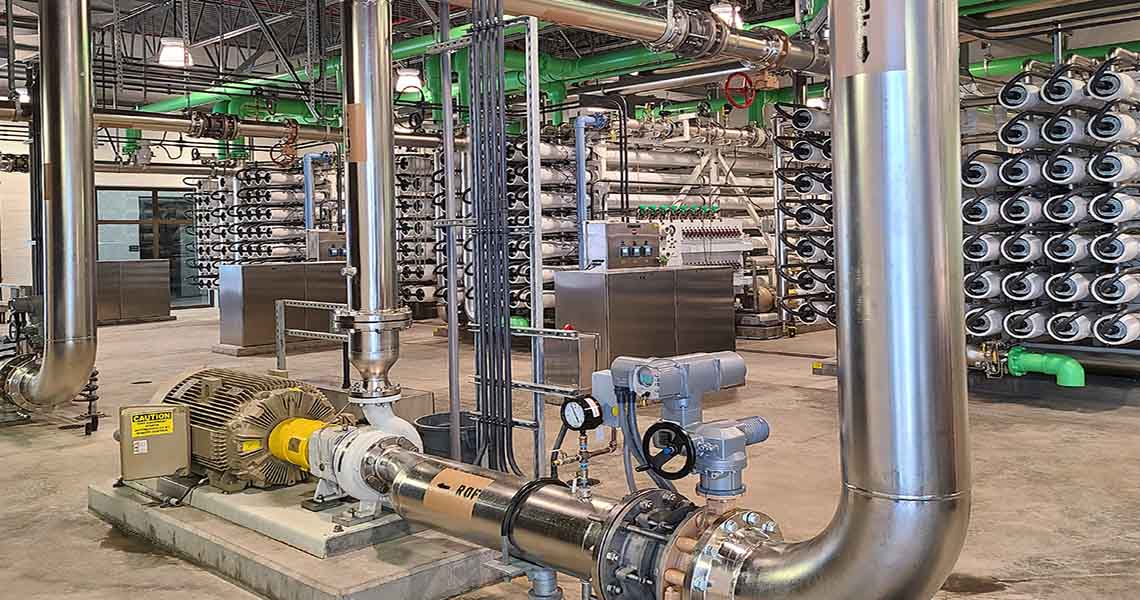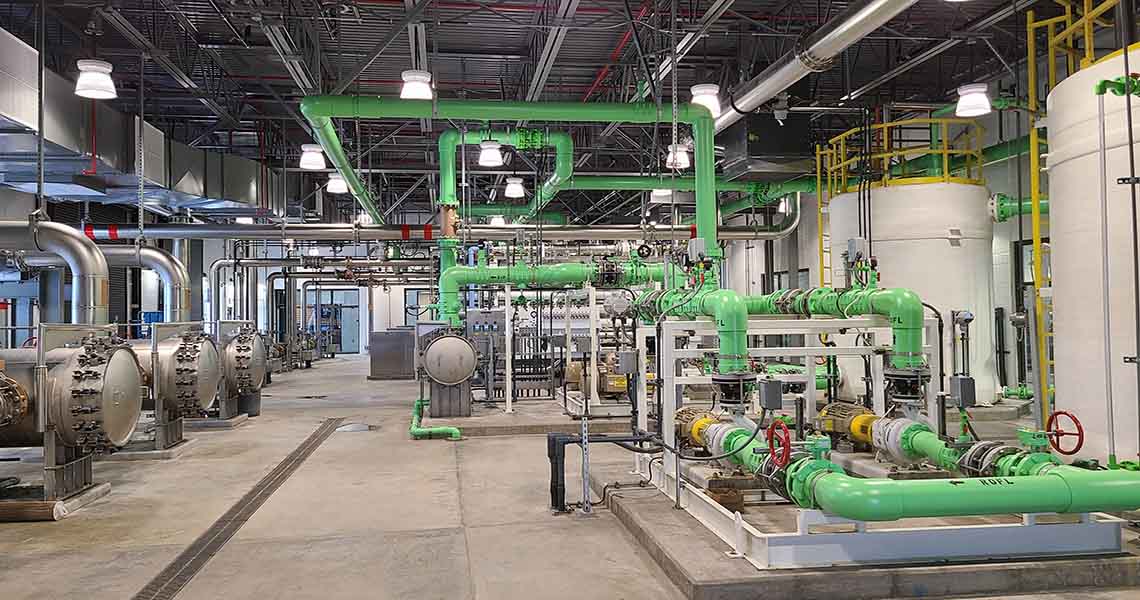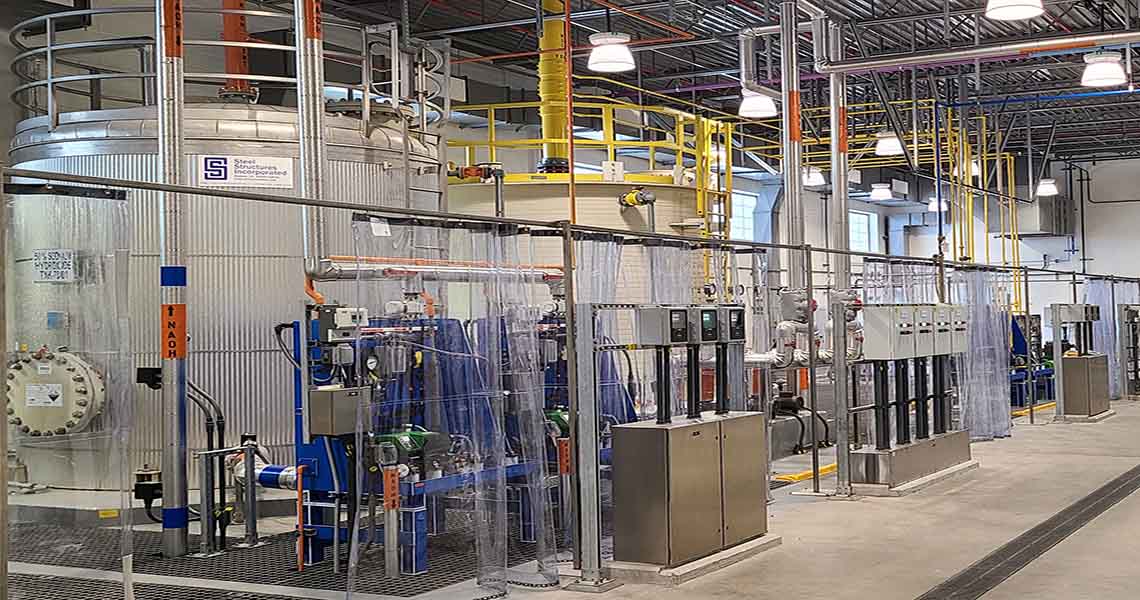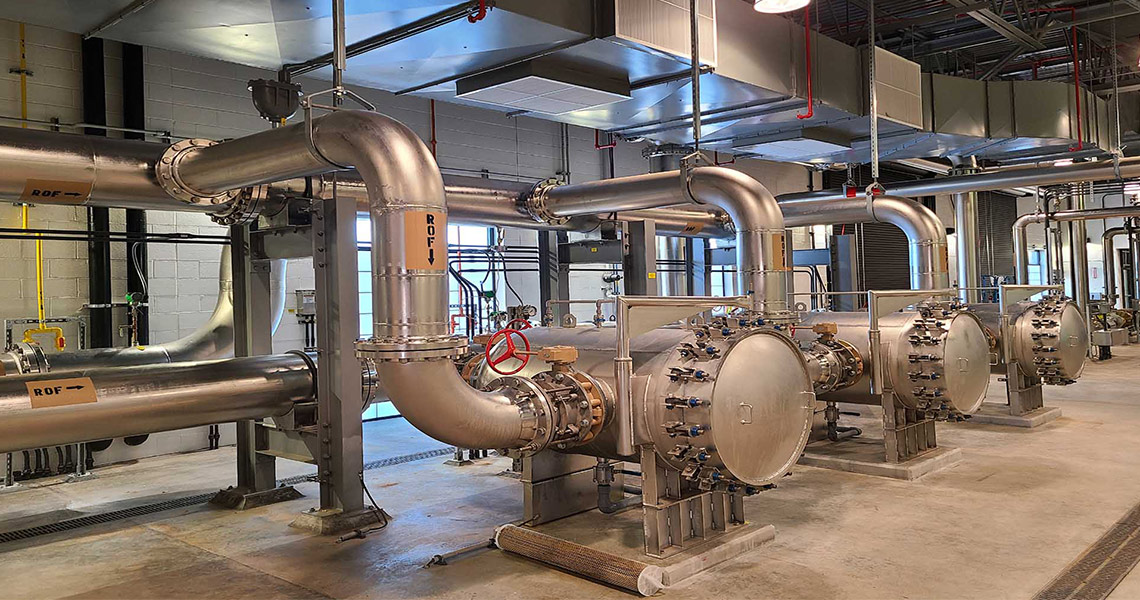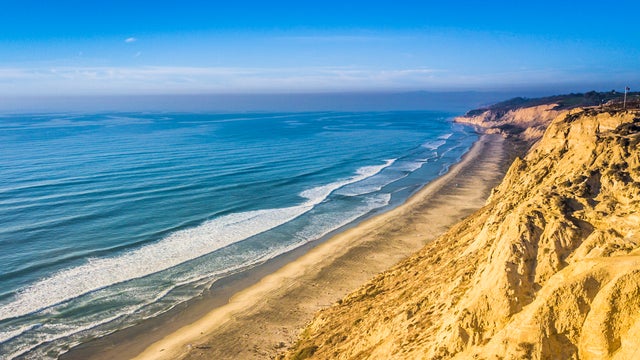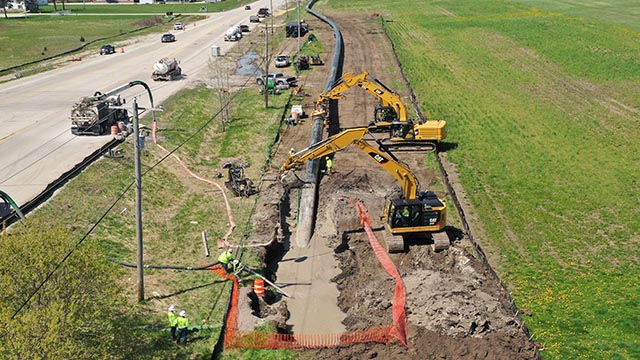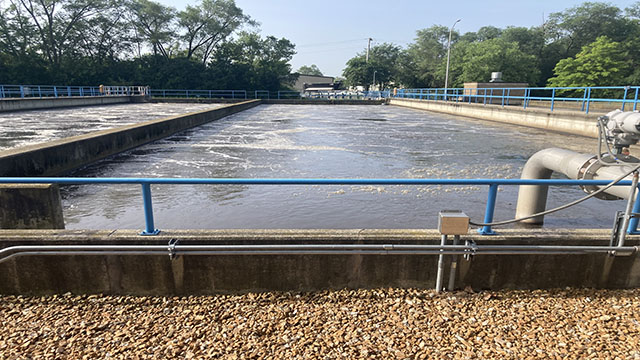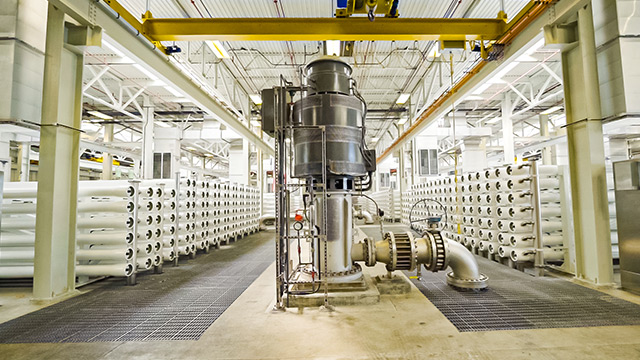The Perris II Desalter is part of a wide-ranging program by Eastern Municipal Water District (EMWD) called the Groundwater Reliability Plus initiative. Its goal: help EMWD secure a drought-resilient and cost-effective water supply across its 558-square mile service area in Riverside County, southeast of the Los Angeles metropolitan area. Designed by Black & Veatch and dedicated in 2022, the facility treats brackish groundwater using reverse osmosis (RO) technology to deliver up to 5.4 million gallons a day (mgd) of potable water, enough for more than 15,000 households a year. The design is based on RO permeate production of 4.5 mgd, plus a 20% nominal raw water bypass flow, and is expandable to 10.8 mgd.
Supporting Groundwater Reliability, Flexibility
Among California’s largest retail water agencies, EMWD provides water, wastewater service and recycled water to nearly one million people. One of EMWD’s primary potable supply sources is imported water (49%) from Metropolitan Water District of Southern California. The other is groundwater (9%) and Groundwater Desalination (8%). Approximately 17% of EMWD’s supply comes from groundwater wells. The remaining source that makes up EMWD’s total water supply portfolio is recycled water (34%). According to the Annual Comprehensive Financial Report, FYE 2022 EMWD’s total water supply is 149,733 AF.
To increase the quality, quantity and reliability of its groundwater resources, EMWD has implemented programs under the Groundwater Reliability Plus initiative for water recycling, water use efficiency, water banking and more. Its desalination program has enabled EMWD to tap into the groundwater resources in its service area despite high salt levels in the basins.
The Perris II Desalter is the third brackish groundwater desalter project completed under the program. Collectively, the Perris II plus Perris I and Menifee facilities have a production capacity of approximately 14 mgd of potable water. Additionally, the desalination program is removing a significant amount of salt from the brackish basins, approximately 65,000 tons a year. That, coupled with impacts from other programs, is improving the quality of groundwater and protecting the adjacent groundwater basins. It’s also reducing EMWD’s reliance on imported water from outside Southern California. Altogether, the desalination facilities are helping EMWD build a local and resilient supply at a cost that is competitive with its imported water supply.
Serving EMWD’s Goals
Black & Veatch’s design served EMWD’s goals for efficient operations, safety, ease of maintenance, future expansion, and optimized site layout. Components evaluated for the design included an RO equalization tank, RO transfer pumping station, RO treatment system (including pre-filters, feed pumps and membrane equipment), clean-in-place system, decarbonation system, chlorine contact tank, chemical feed and storage, and a finished water pumping station.
Key solutions included:
Treatment of Varying Water Qualities - The Perris II Desalter treats raw water from up to 14 brackish groundwater wells. Each has a different water-quality profile comprised of recovery-limiting constituents such as silica, calcium carbonate and barium sulfate. To mitigate the issue, a probabilistic blending model was created to accurately evaluate various water quality scenarios and instill confidence in the design criteria. To determine optimal recovery conditions, three conventional RO designs were compared to four closed-circuit RO designs. Based on the findings, a demonstration facility was built and operated, resulting in the selection of conventional RO technologies with an optimal design recovery of 85 percent.
Site Location and Layout - The design of the Perris II Desalter was integrated with the existing Perris I and Menifee facilities, creating what EMWD now calls its Desalination Complex. The integration enabled Black & Veatch to optimize the design for more efficient operations and future expansion, including additional treatment equipment, yard piping, building extensions, chemical feed systems and surge protection facilities. With the complex located in a residential neighborhood, managing community impacts was important to the design. EMWD engaged the community through a comprehensive public outreach effort which helped to shape the Architectural design. As a result, the Perris II Desalter design is consistent with the community’s request and blends with the surrounding neighborhood. In addition, its layout allows for a future public roadway extension through the site.
The Perris II Desalter is operating as intended according to EMWD, treating raw source water from various brackish groundwater wells and consistently meeting all water quality and production goals. It’s serving as a key piece of EMWD’s strategy to become less reliant on imported water and drought-proof its service area by building a local, reliable, flexible water supply.
